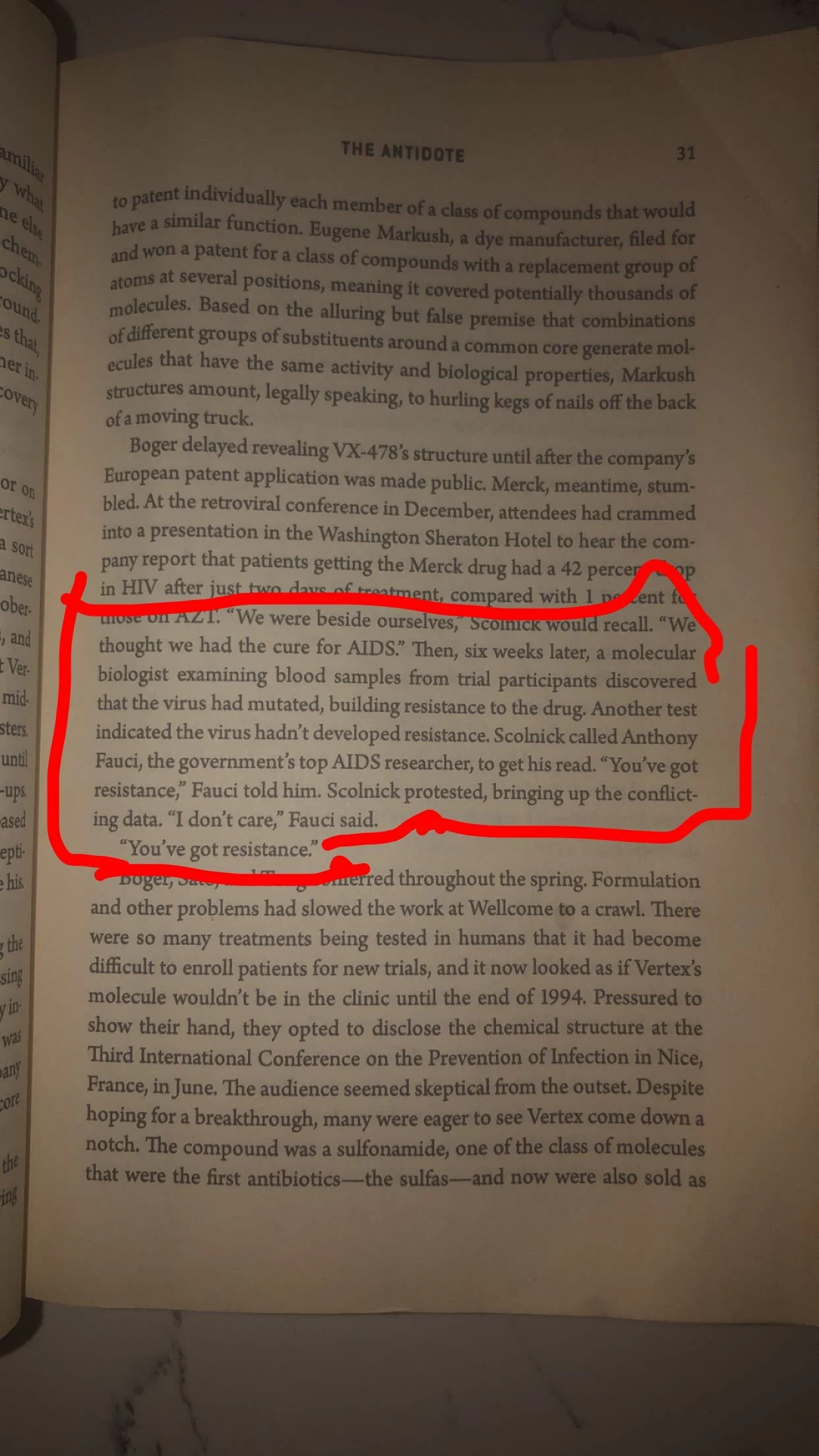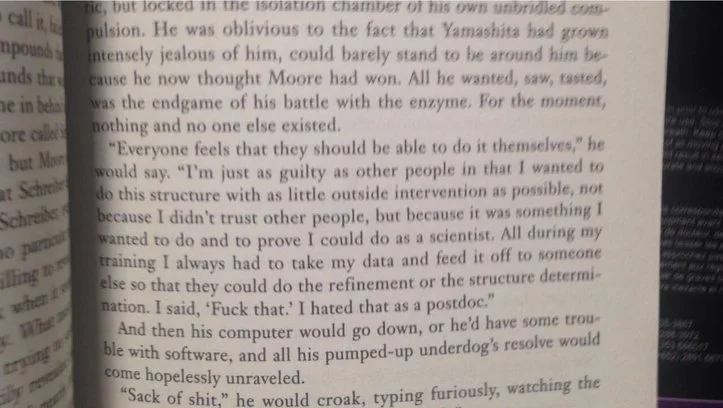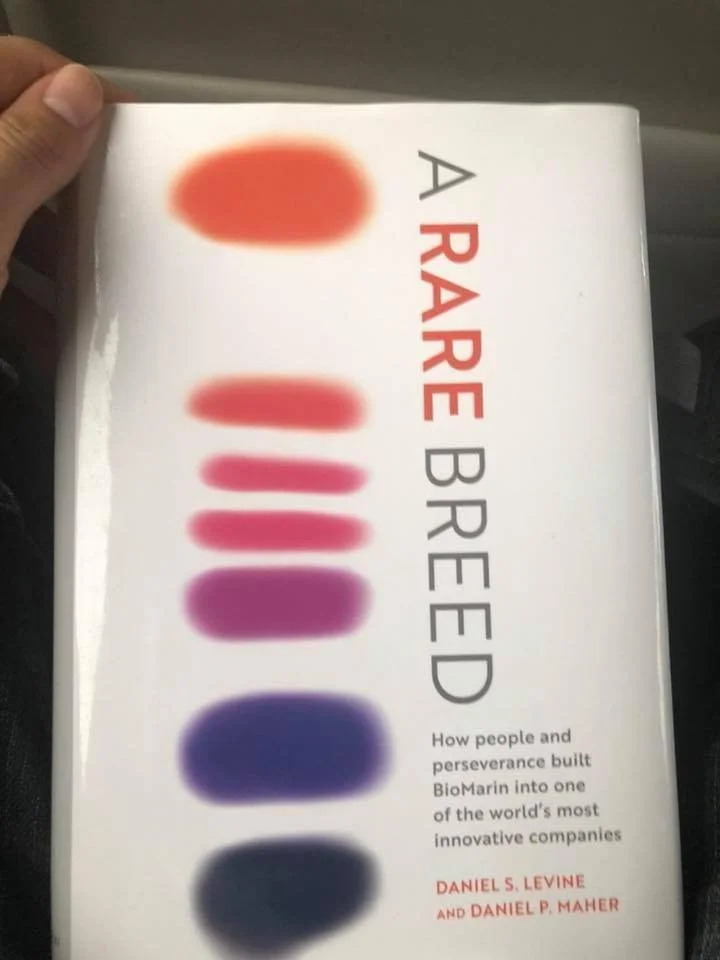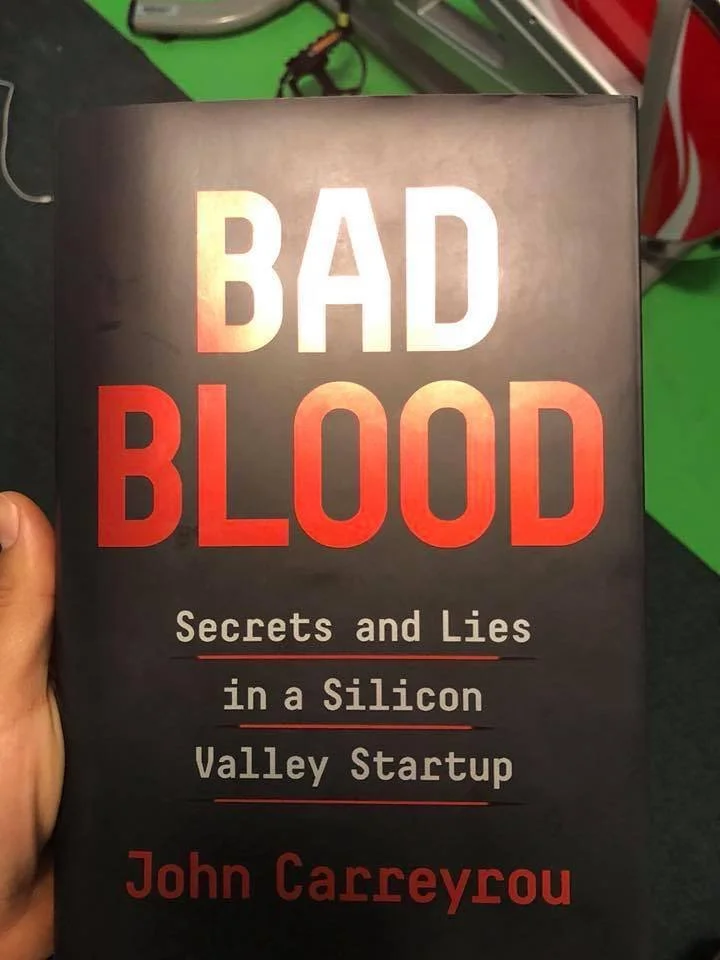Biotech/drug books and biographies
I love reading the origin stories of pharmaceutical/biotechnology companies (and scientists too!) These are some highly recommended books for anyone interested in the discovery process.
The Billion Dollar Molecule and its sequel, The Antidote
These are the greatest books of all time. They follow the early days and the commercial stage at Vertex Pharmaceuticals with so much depth and context, its amazing. Its an honest look at science, the pharmaceutical industry, business, and medicine. Plus, it humanizes scientists and the scientific process. We all curse, we make mistakes, we get angry, but you don’t see that at poster presentations or in papers. These books show you the joy, the sorrow, and everything in between when doing science. If you’re a grad student or undergrad interested in drug discovery, this is absolutely a must read. Anytime I need inspiration, I re-read “The Antidote.” Some highlights:
- An X-ray crystallographer throwing a chair through a window out of frustration
- When trying to publish the crystal structure of FKBP before a collaborator scoops them: “We wanted to step on his neck and rub his nose in it”
- Describing an [underwhelming] partnership during an HIV protease inhibitor licensing deal: “We knew that we often ignored the scratches on the paint. But they would just stare at them and get depressed about how they couldn't do anything.”
Anthony Fauci makes an appearance!
As much wisdom as a Jay-Z album.
Genentech
The cover should be an old school hand-drown plasmid map but this is cool too.
One of the first books I read about drug companies. It’s a short read, but gives you a lot of history: before UCSF was UCSF, and back when you could “dry running shoes in the fume hood.” Its not light on the drama either: an allegedly inebriated postdoc allegedly removed plasmids from lab under allegedly questionable legal pretenses. Allegedly fun!
A Rare Breed
A detailed history on BioMarin, one of the first companies that entered the rare/orphan disease field. It goes into good detail on the science of the diseases/drugs they discuss and include plenty of cool/interesting stories. I also really liked that they include a timeline of BioMarin’s milestones as a company, plus each chapter has a quote from someone involved that gives you a hint on what the chapter is about. If you’re interested in the pharmaceutical industry, it’s definitely worth a read.
A crack in creation
A book on [Nobel laureate] Jennifer Doudna’s discovery of CRISPR/CAS9. It tracks Dr. Doudna’s career, includes her opinions/hopes for science, and has great diagrams showing how CRISPR works. It doesn’t go into detail regarding the Broad vs Berkeley patent beef, but still a nice read.
Hood
This book had me doing 100 pushups in the morning for a few months (Lee Hood’s daily workout routine, on top of running.) It’s a good read for anyone interested in the history of biotech instrumentation: Lee Hood was involved in the automation of DNA sequencing, DNA synthesis, protein sequencing, and peptide synthesis.
Bad Blood
To the Regulatory Scientist in me, this book read like a horror novel. Its an absolute jaw-dropping account of Elizabeth Holmes’ rise and fall. I get the folksy appeal of silicone valley tech disruptors tinkering with stuff in a garage, just not when it comes to human health. Its easy to laugh at Theranos’ claims in hindsight, but they had very big names on their board: George Shultz, James Mattis, Henry Kissinger, etc.
That said, entrepreneurship requires a lot of the characteristics Holmes displayed, so how could the average person know she was up to something shady? To me, the biggest red flag was that she didn’t want to share any data on anything, which made no sense. Medical devices are like drugs; no patent, no product. In patenting your drug/device, you “must provide sufficient detail for a person skilled in the art (i.e., the relevant area of technology) to make and use the invention” unless you go the trade secrets route. But with drugs/devices, you also need FDA approval, which requires an ungodly amount of documentation and transparency. You can’t play silicone valley games with the FDA, but they get an E for effort (and probably jail time.)
A Life Decoded
This might be the book that started my scientific career. It’s the story of how Craig Venter went from a beach bum to (arguably) ushering in the age of genomics. I got this book when I was in high school, and it changed the way I thought about science. Venter rails against everyone: the funding agencies and bureaucrats that fail to recognize the value of novel/risky techniques, established scientists whom he believes are slowing down the race to sequence the human genome (with their teaching and grant writing obligations), and even corporations that put their [massive] investment before the discovery process.
Honorable mentions:
Triumph of the Heart: the history of the best selling drug of all time, Lipitor (wasn’t first or best in class btw!)
Science Lessons: What the Business of Biotech Taught Me about Management: first-person account from Gordon Binder, CEO of Amgen from 1988-2000
Managing Biotechnology: an easy intro on the business behind biotech
At the Helm: a must if you plan on pursuing an academic career













![Vol. 2...Hard Knock [Postdoc] Life](https://images.squarespace-cdn.com/content/v1/5c2655008f5130ba17695fec/1667928516707-GYZ5XQA2VW2CQC215AX2/IMG_9118.jpg)
